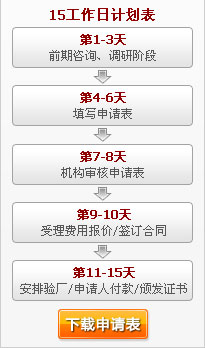Qinghai Boosts Halal Food Industry
Northwestern China’s Qinghai Province is striving to develop its halal food industry, and make it go global.
The sixth China (Qinghai) International Halal Food and Products Fair concluded on July 16. The four-day event is an indication of Qinghai’s efforts to boost the halal food industry.
The fair, jointly held by the China Council for the Promotion of International Trade (CCPIT) and the four provinces Qinghai, Xinjiang, Gansu and Shanxi, attracted about 180,000 visitors. The volume of the contracts between domestic firms and those from 35 countries totaled nearly $500 million, according to the organizing committee of the fair.
This year’s fair surpassed its former ones in terms of number of exhibitors and product scale. 759 firms at home and abroad attended the fair, with the 116 foreign ones. 12 foreign countries like Pakistan, India, Malaysia and Iran had their own national pavilions at the fair. The products on exhibition covered halal food, processing technology of halal food and halal products.
“According to incomplete statistics, the total sales volume on the fair amounted to RMB 3.2 million, and the contract amount totaled over RMB 60 million, with the potential investment up to $476 million,” said Wang Xihui, president of the CCPIT Qinghai Sub-council.
Meanwhile, various activities were held to showcase the Islam culture and promote the exchanges and cooperation among international halal food and products enterprises, such as an economic and trade cooperation forum, an international halal food festival, training on halal food certification and a purchase-consulting meeting.
“The fair, combining the exhibition of halal food, investment,?trade
promotion, seminars and cultural exchange, has set up a platform for the promotion of halal food and products and presented business opportunities,” said Luo Huining,?governor of Qinghai Province, in his opening speech at the fair.
“The yearly fair to which the CCPIT attached great importance is an essential platform to promote China’s economic cooperation with Muslim countries across the globe and revitalize the halal industry,” said Dong Songgen, vice-chairman of the CCPIT, in his opening speech.
“Since its beginning with the focus on Qinghai’s halal food to go global, the fair has been focusing more on its role to better bolster the world halal food sector, and serve for the friendly ties between China and Islam countries,” said Luo.
“In the future, the CCPIT will, as always, support the fair to make it an international and professional fair with national characters, drive the open economy of Qinghai and strengthen the friendship between China and Muslim countries,” said Dong.
The fair made its debut in 2007. Thereafter, the fair is held in Qinghai every year and has become the largest and most influential of its kind in China.
Qinghai has over 1.1 million Muslims, accounting for 20 percent of the province’s population. In addition, Qinghai, as one of the four major pasturing areas in China, is rich in raw materials of halal food. These have added to Qinghai’s advantages to develop halal food industry.
So far, Qinghai has over 300 enterprises engaged in production and processing of halal food and drinks, over 5,500 restaurants offering halal food, over 20 companies engaged in halal products. In 2011, the output value of the halal industry totaled roughly RMB 3 billion.
At present, the provincial government has initiated the construction of a halal food park, covering a total area of 1,424 mu (82.8 hectares) in the provincial capital Xining, to meet the new industrialization of the industry.




 微信咨询:
微信咨询:
 电话咨询:
电话咨询: